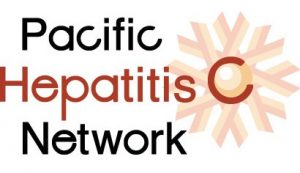The BC Centre for Disease Control (BCCDC) has created a health database “…to assess and monitor disease burden, co-infections, disparities in testing and care, health care utilization, treatment uptake and completion, effectiveness of treatments, cost of hepatitis C-related illness and the impact of treatment on illness related costs and outcomes…” (BCCDC)
The BCCDC believes that with this tool, they will be able to “…better measure health outcomes and assess the effectiveness of prevention, care and treatment services” for those with hep C (HCV) or HIV. The database is a collection of information, all anonymous, on laboratory test results, doctor visits, hospital stays, cancer treatment, and prescription drug information.” (BCCDC)
CKNW’s Interview between Simi Sara and Dr Mel Krajden about this New Health Database
BCCDC’s Press Release about the New Health Database (Press Release)
BCCDC publishes new findings on power of integrated health data
Vancouver – Researchers from the BC Centre for Disease Control (BCCDC) have assembled a database containing health records of 1.5 million patients to better measure health outcomes and assess the effectiveness of prevention, care and treatment services.
The health records are anonymized, meaning anything that could identify patients has been removed.
The BC Hepatitis Testers-Cohort (BC-HTC) combines pre-existing stand-alone databases and integrates information. The BC-HTC brings together anonymized information on laboratory test results, doctor visits, hospital stays, cancer treatment, prescription drug information for people in BC who has been tested for hepatitis C (HCV), tuberculosis or human immunodeficiency virus (HIV).
The BCCDC research paper recently published in the scientific journal EBioMedicine demonstrates how integration of data using the BC-HTC can be utilized to better monitor the progress of Hepatitis C infected people across their illness and care journey.
The BC-HTC offers a powerful tool to assess and monitor disease burden, co-infections, disparities in testing and care, health care utilization, treatment uptake and completion, effectiveness of treatments, cost of Hepatitis C-related illness and the impact of treatment on illness related costs and outcomes.
Hepatitis C is a chronic viral infection of the liver affecting about 180 million people worldwide. Approximately one per cent of British Columbians are infected with hepatitis C, and three per cent of “baby boomers”. Without treatment up to 25 per cent will die from liver cancer or other complications. The recent discovery of effective, well tolerated and curative drugs is considered a medical game-changer. However, the cost of treatment remains a challenge.
This integrated dataset provides a population level approach to monitor how hepatitis C infected British Columbians are supported across their care needs. This approach is consistent with the recent World Health Organization’s hepatitis elimination strategy.
More information about the BC Hepatitis Testers Cohort: http://bchtc.med.ubc.ca/
Quotes
Health Minister Terry Lake – “We have decades of anonymized patient records which until now, have been an underused resource. These records can be used for public benefit to improve the quality of health services British Columbians receive and to ensure people have equitable access to prevention, care and treatment services.”
Dr. Mel Krajden, Medical Head of Hepatitis, BCCDC – Professor, Pathology & Lab Medicine, UBC – “This is an important step in bridging information gaps in the health system. What gives our database its unique strength is that it links your family doctor’s records to any hospital visits, prescription data and lab tests without disclosing the identity of patients. It helps us determine who is affected, who is diagnosed, what proportion of patients are engaged in care, how many are treated and how many are cured.”
Dr. Naveed Janjua, Senior Scientist, Hepatitis, BCCDC – Clinical Associate Professor, School of Population & Public Health, UBC – “The paper highlights how we can measure our progress in providing services to people with hepatitis C. People were tested for hepatitis C infection but very few were treated. New highly effective treatments which have lower side effects are expected to change that.”
The BC Centre for Disease Control, an agency of the Provincial Health Services Authority, provides provincial and national leadership in public health through surveillance, detection, treatment, prevention and consultation services. The Centre provides both direct diagnostic and treatment services for people with diseases of public health importance and analytical and policy support to all levels of government and health authorities For more information, please visit www.bccdc.ca or follow us on Twitter @CDCofBC
The Provincial Health Services Authority (PHSA) plans, manages and evaluates selected specialty and province-wide health care services across BC, working with the five geographic health authorities to deliver province-wide solutions that improve the health of British Columbians. For more information, visit www.phsa.ca or follow us on Twitter @PHSAofBC.

